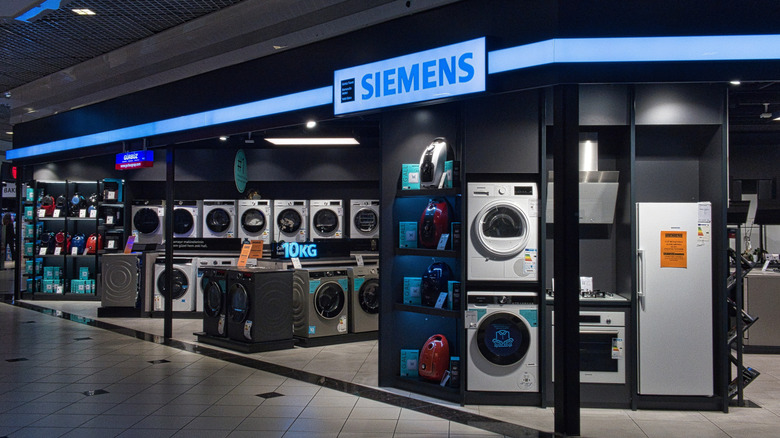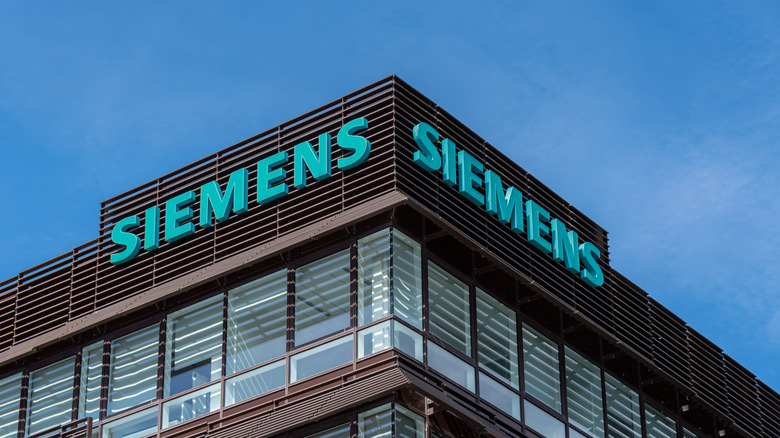This Is The Oldest Electronics Company Still Operating Today
The technology industry moves fast. Brutally fast. A few short years can turn today's shiny innovation into tomorrow's digital fossil, and plenty of once-untouchable giants are now reduced to Wikipedia footnotes. But there are a few companies that have survived that churn of obsolescence. Chief among them is Siemens, the oldest electronics company still operating today, founded long before electricity even became a household concept.
The story begins in 1847, when electrical engineer Werner von Siemens and precision mechanic Johann Georg Halske invented the pointer telegraph. This was a clever machine that replaced the dots and dashes of Morse code with letters on a dial – a huge leap forward for communication technology at the time. Following the huge success of the device, Siemens and Halske cofounded a company and quickly made a name for themselves by building one of the first major telegraph networks in Europe. They laid underwater cables, strung lines across continents, and wired up a world that was just starting to understand what it meant to be connected. Essentially, Siemens helped build the infrastructure that made the Industrial Revolution possible.
Halske stepped away in 1867, leaving full ownership to the Siemens family to expand into new frontiers: electric lighting, power generation, and railways. When X-rays were discovered in 1895, Siemens jumped in within a year, manufacturing medical imaging tech that changed the health industry forever. By the 1950s, the company's portfolio had exploded — from semiconductors to pacemakers to household electronics like washing machines, vacuum cleaners, and refrigerators. Siemens was also at the forefront of mobile technology, launching its first model in 1985 and becoming a key player in Europe's mobile market before eventually selling that arm to BenQ in 2005.
What is Siemens up to these days?
Fast-forward nearly two centuries, and Siemens is still very much in the game. The company is now a sprawling conglomerate that operates across industries most people don't think about until something breaks. Headquartered in Munich and active in over 190 countries, Siemens is now deep into industrial automation, building the systems that run factories, power plants, and infrastructure projects around the world.
If you've ever ridden a train in Europe, there's a good chance Siemens built it — or at least the signaling system keeping it from colliding with another. In healthcare, their technology underpins much of modern medicine, from MRI and CT scanners to the diagnostic systems hospitals depend on daily. They've also become key players in sustainable energy, designing wind turbines, grid infrastructure, and industrial electrification systems that help the world inch toward decarbonization.
Much of Siemens' current portfolio is powered by AI and digital twins — software models that simulate real-world machines to optimize performance and predict failures before they happen. With AI adoption and integration ramping up globally, it appears that the company will continue to be around for many more years.

